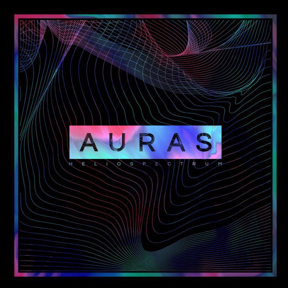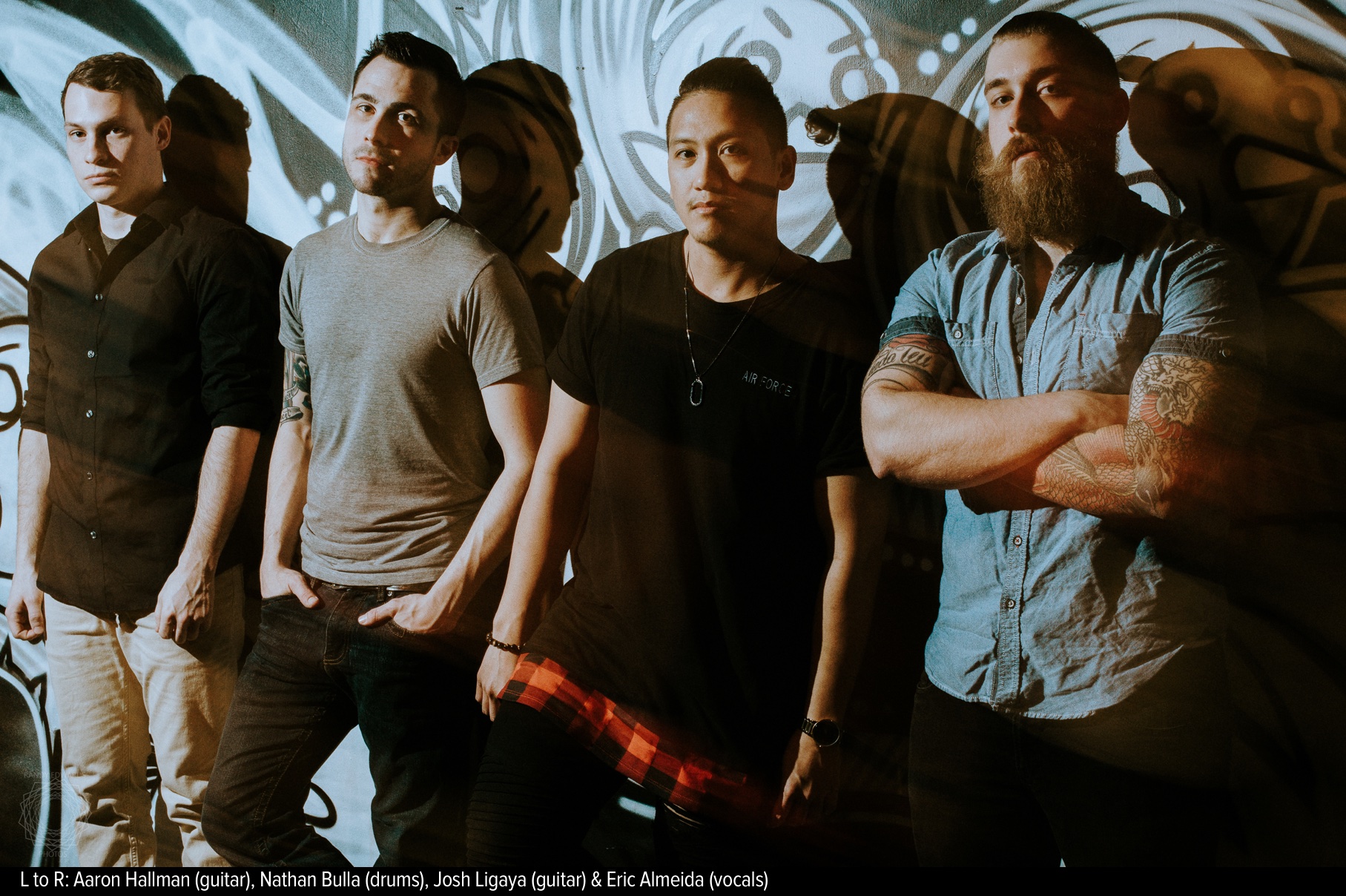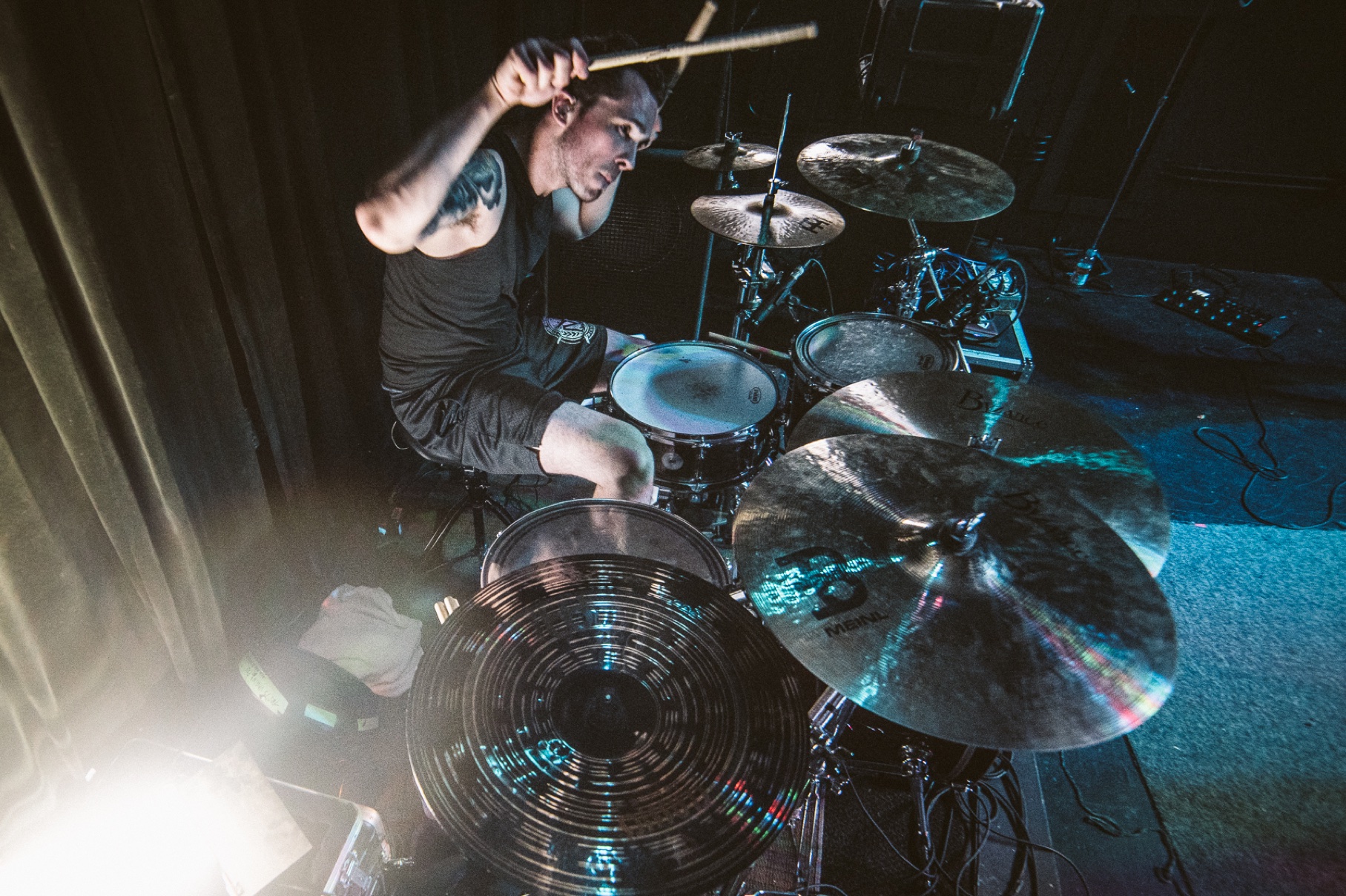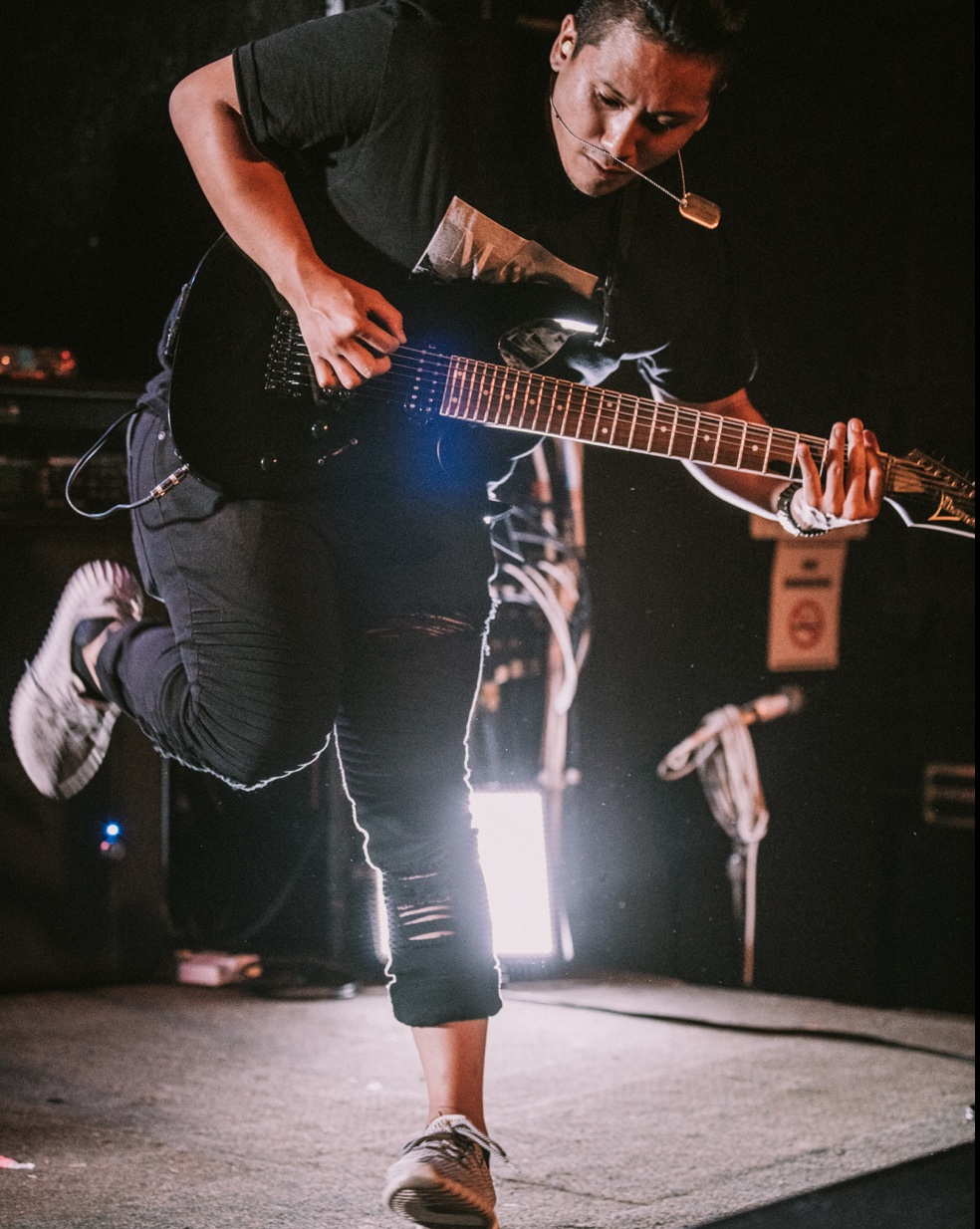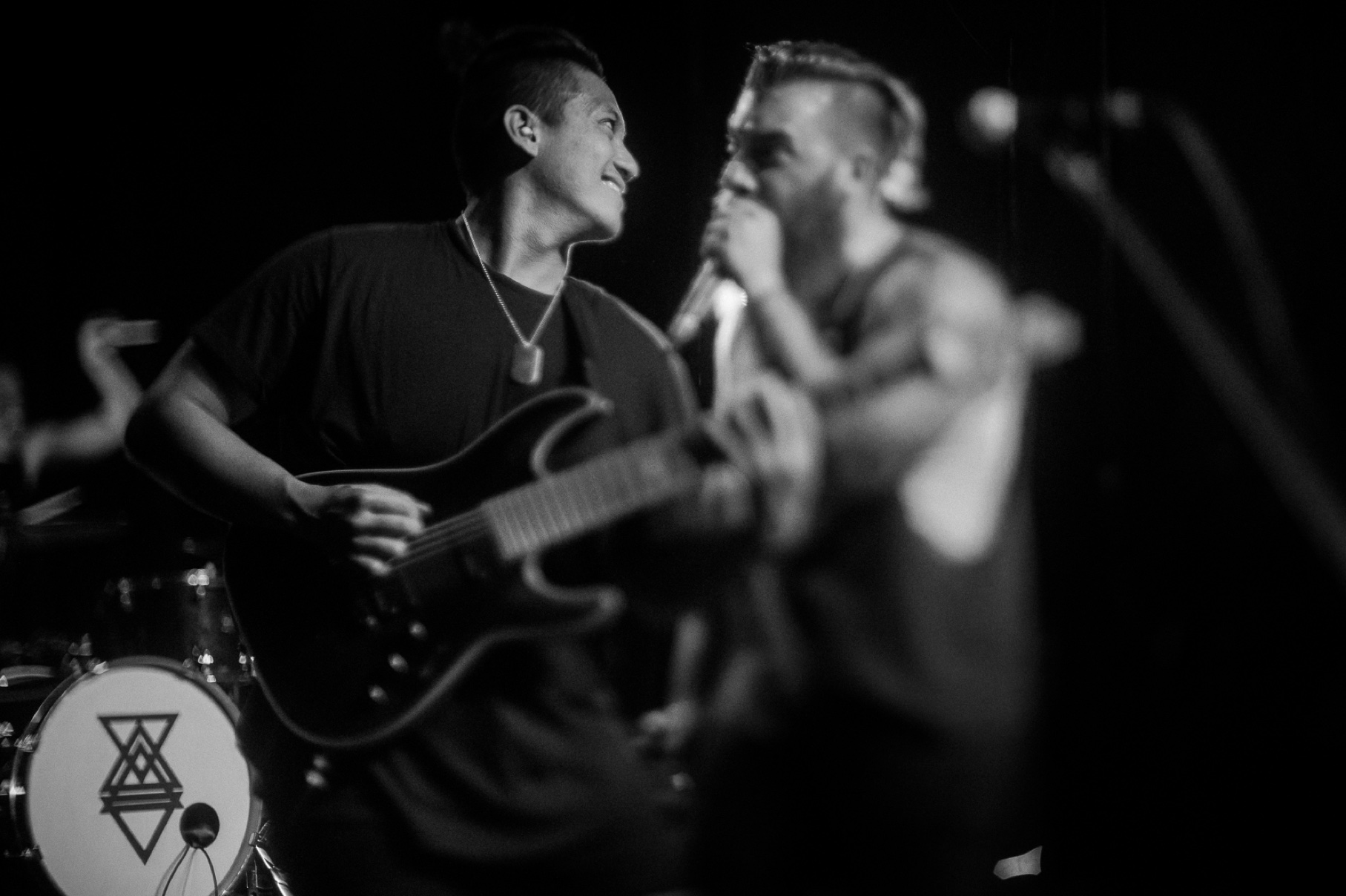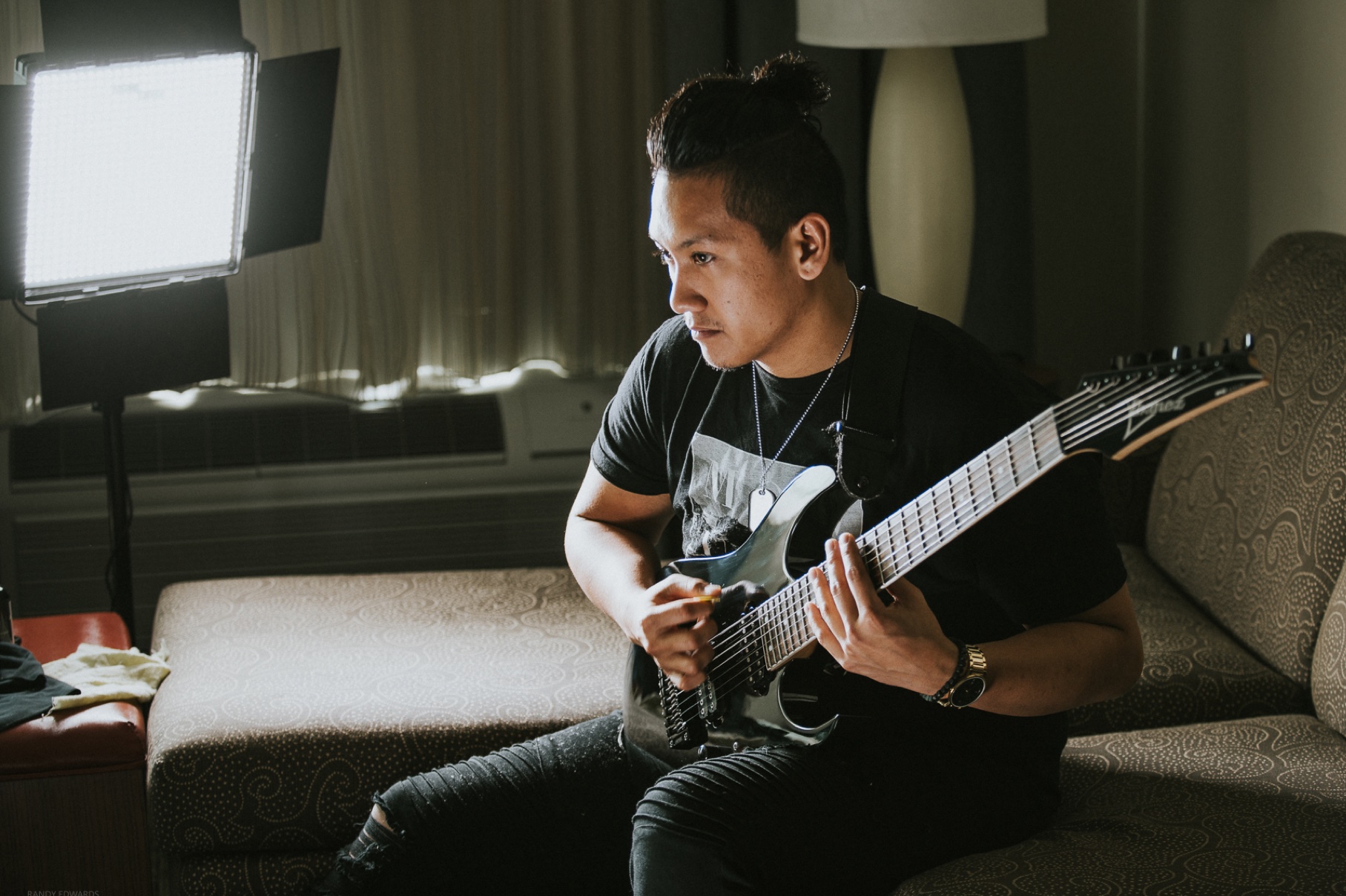Do you have any tips for learning new material for a gig?
Nathan: I’d say listening is always the first step to learning material, and Capo lets you listen in a more detailed way. To be able to hear any pattern at two drastically different tempos raises the likelihood that you’ll commit it to memory. Once you apply this to physical muscle memory your ability to improvise without losing comfort in the initial pattern is immediately improved.
This is my “Get Out Of Jail Free” card on stage because even if I miss some notes or play a fill differently than I meant to, my overall comfort and familiarity with the material in different settings makes it almost impossible to lose where I am. Between the material I need to know for AURAS and Intervals I’m constantly challenged with new types of coordination I’ve never attempted, so Capo is absolutely crucial. The ability to loop a small section, start slow, figure out sticking/footing and raise the speed variably as I gain confidence and control has been an absolutely game-changing time-saver.
Can you share with us your songwriting process?
Josh: When I sit down to write, I start with a layer to help spark emotion, which in turn starts inspiring ideas – sometimes snowballing into a full demo within a single afternoon. If that process doesn’t start moving after trying a couple different sounds, I’ll drag it into Capo and see if a pitch change or tempo change is the catalyst. It’s amazing how BPM and key can affect the overall approach of a song’s vibe. It’s all about feeling natural and intuitive for me, and Capo never seems to hinder that.
